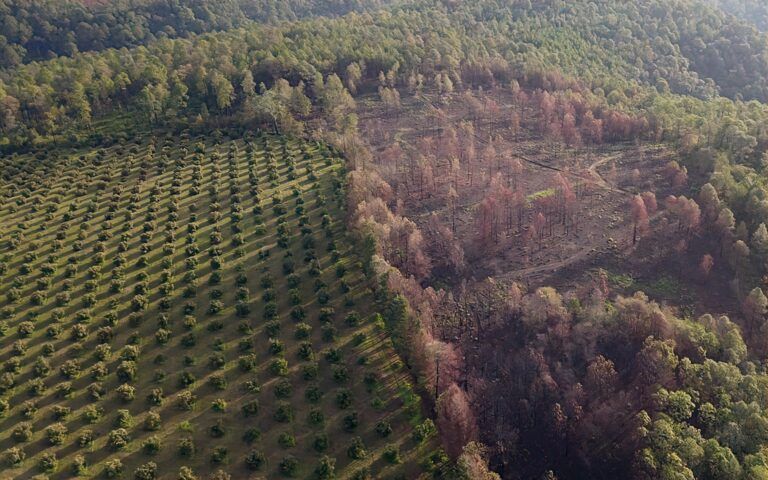Read in: English | Español | Full Report
(San Francisco, November 28, 2023) – Avocados grown for export to the United States, Europe, and other major markets are fueling widespread deforestation and water theft in the Mexican states of Michoacán and Jalisco, with dire consequences for the rights of local residents, Climate Rights International said in a report and accompanying video published today. Indigenous leaders and other residents seeking to defend their forests and water have been threatened, attacked, and killed.
The 250-page report, “Unholy Guacamole: Deforestation, Water Capture, and Violence Behind Mexico’s Avocado Exports to the U.S. and Other Major Markets,” presents voluminous new evidence linking major importers and supermarkets to this environmental destruction. The report documents how Mexican and U.S. authorities—who closely regulate and facilitate the exports—are failing to take basic steps to stop the devastation, despite climate-change commitments to end global deforestation.
“Any avocado you eat from Mexico may have been grown on illegally deforested land, using stolen water, in a region where environmental defenders are targets of violence and intimidation,” said Brad Adams, Executive Director at Climate Rights International. “It doesn’t have to be this way. If exporters, importers, and supermarkets would make the effort to sell only deforestation-free avocados, it would dramatically reduce the economic incentive to clear the forests or attack the people defending them.”
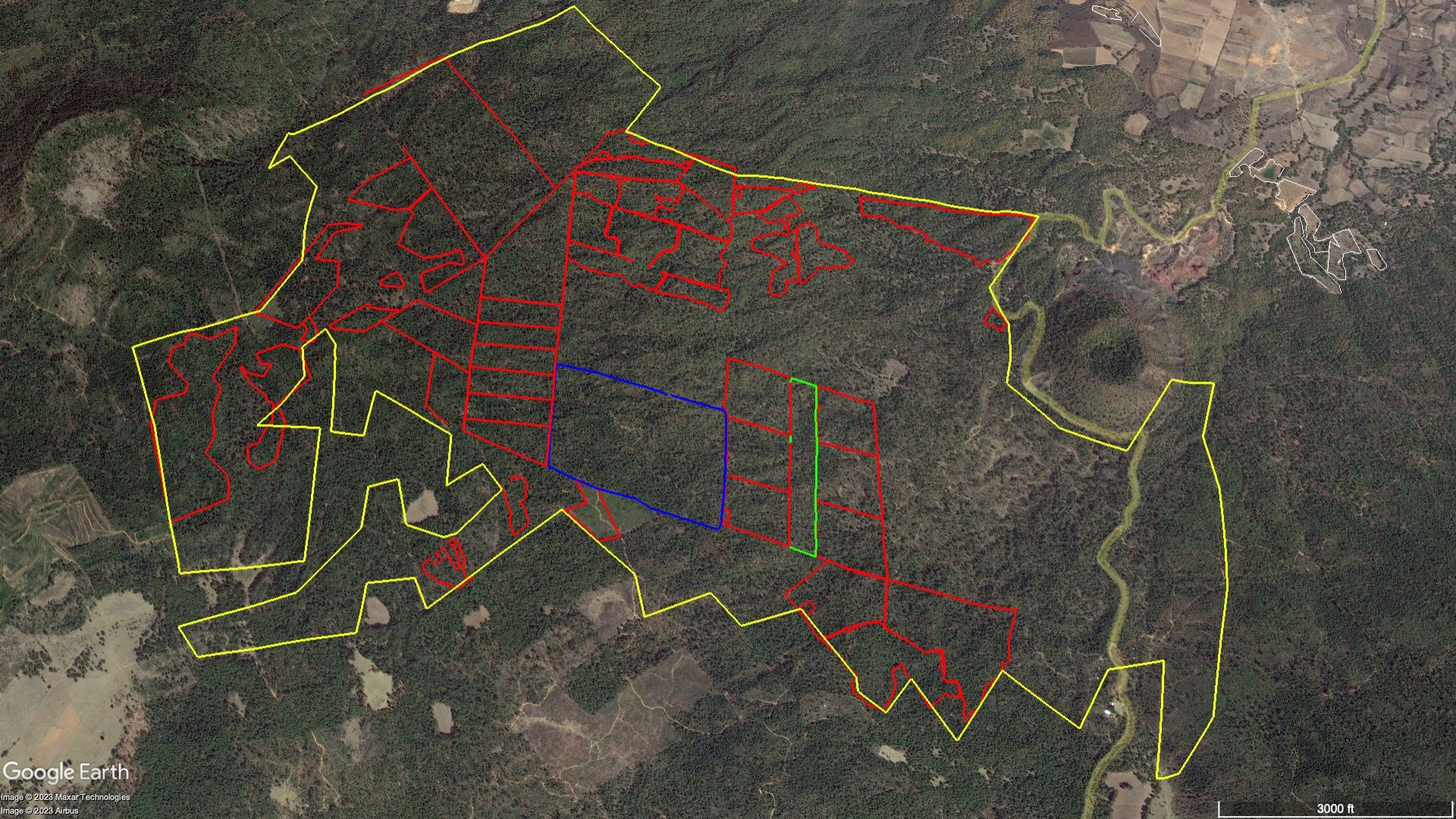
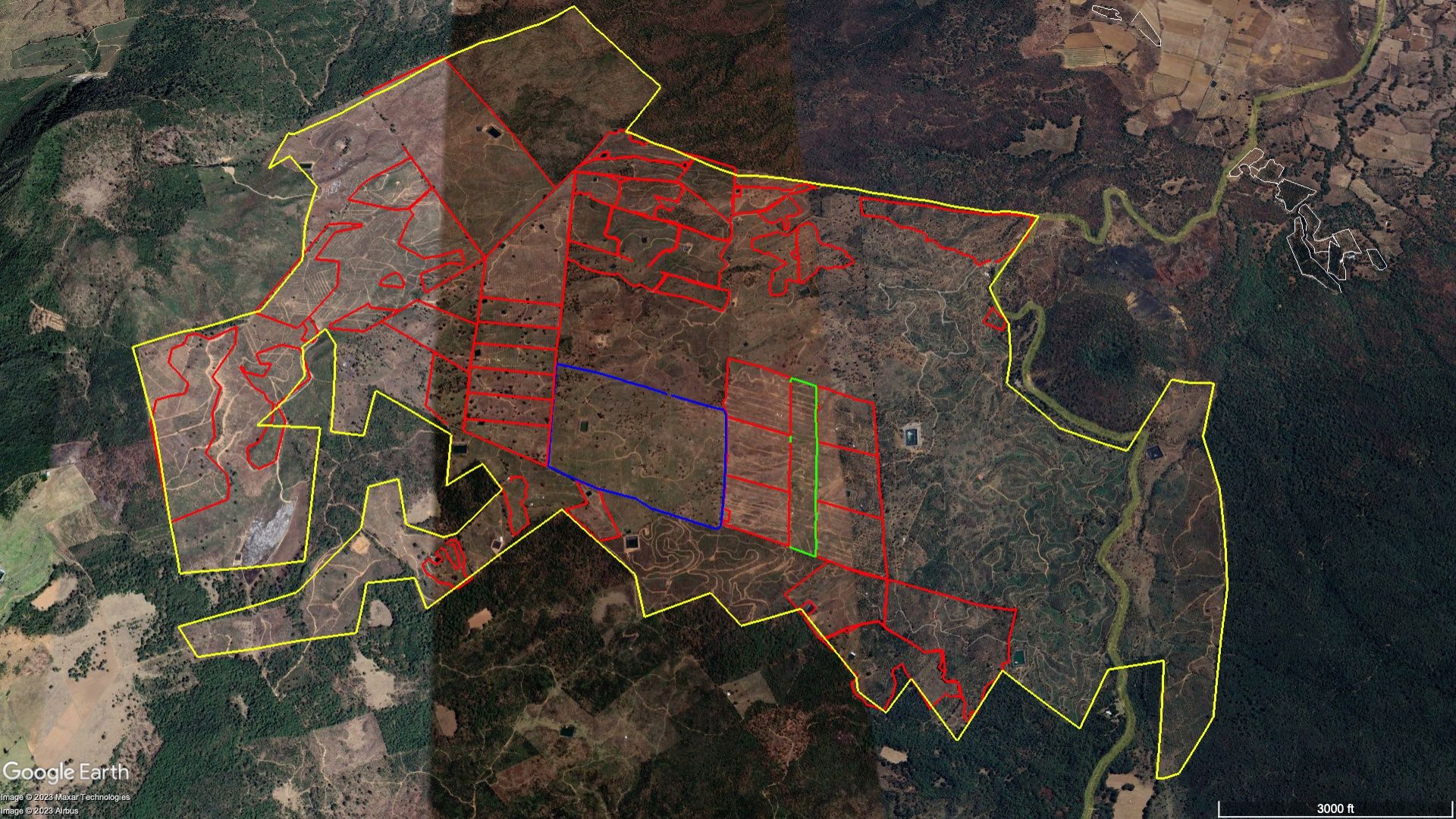
Google Earth, images (C) 2023 Maxar Technologies and Airbus. The “before” image, from 2015, shows an area outside of Zacapu, Michoacán. The area outlined in yellow is 2,705 acres. The “after” image is from the same area, and mostly from 2023. It reveals deforestation throughout the yellow-outlined 2,705-acre area since 2015. The red, blue, and green outlines are government maps of avocado orchards certified to export to the United States as of January 2023. Government shipping records indicate that in 2022 the orchard containing deforested land outlined in blue provided 27,510 kilograms of avocados to Mission Produce, while the orchard with deforested land outlined in green provided 25,455 kilograms to West Pak.
Companies Claim Sustainability Despite Deforestation
The world’s leading producer and exporter of avocados, Mexico supplies four out of five avocados eaten in the United States in exports worth US$3 billion per year. U.S. avocado consumption has tripled since 2000, partly driven by the industry’s vigorous marketing campaigns, including claims of Mexican avocados’ “sustainability.” A 2023 Super Bowl ad showed Eve holding the fruit in the Garden of Eden; a press release for the ad exclaimed, “Talk about holy guacamole!”
Mexican avocados are also increasingly reaching other international markets, with more than US$2 billion exported to Europe, Canada, and Asia over the past five years.
Climate Rights International obtained and reviewed previously unpublished maps of the more than 50,000 avocado orchards certified by Mexican and U.S. authorities to export to the United States as of January 2023. The review found U.S.-export certified avocado orchards containing deforested land in 49 of the 56 Michoacán and Jalisco municipalities that export to the United States. Michoacán and Jalisco are the only two Mexican states authorized by the United States to export to the country.
Despite making strong sustainability claims, many major companies are taking little or no action to prevent contamination of their supply chains by deforestation-linked producers in Mexico.
Based on previously unpublished Mexican government records, the report documents—with 75 illustrative examples—how in 2022, orchards containing deforested land were among those that supplied avocados to the U.S.-based companies Calavo Growers, Fresh Del Monte Produce, Mission Produce, and West Pak Avocado, and Mexico-based Aztecavo. The companies have, in turn, supplied Mexico-sourced avocados to major supermarket chains, including Albertsons, Costco, Kroger, Trader Joe’s, Walmart, and Whole Foods.
Illegality and Abuses
Virtually all of the deforestation for avocados in Michoacán and Jalisco over the past two decades has been illegal, in violation of Mexican criminal laws, Climate Rights International found. In many instances, the land has been cleared by intentionally setting forest fires, which is also a crime. The conversion of natural forests to avocado plantations releases climate-warming greenhouse gases, reduces carbon storage, and undercuts biodiversity and the replenishment of aquifers.
Avocado producers use enormous amounts of water, and many extract it illegally from streams, rivers, and underground aquifers to irrigate their orchards. Deforestation and water capture have taken a serious toll on local populations, contributing to water shortages and increasing the risks of lethal landslides and flooding. The report outlines evidence linking avocado production to the deforestation and forest fires that were, according to Mexican authorities, central causes of a 2019 flash flood that killed five people in San Gabriel, Jalisco.
Indigenous Purépecha communities and other local residents have mobilized to defend the forests, but they have been thwarted by violence and intimidation, which they attribute in many instances to organized crime groups that dominate the region and have multiple links to parts of the avocado industry. For example, after the Indigenous community of Ocumicho prohibited outsiders from planting avocado, two leaders were shot, one fatally, another leader was kidnapped, and a community member who participated in conservation efforts was killed.
Climate Rights International interviewed more than 100 people in more than a dozen avocado-producing municipalities in Michoacán and Jalisco, and encountered pervasive fear among residents that opposing the deforestation or water theft would put them in danger. “If you point the finger or talk, they’ll kill you,” said one Indigenous leader from Michoacán.
Michoacán and Jalisco officials recognize that avocado production is a central cause of deforestation in their states. As Michoacán’s Secretary of Environment has put it, “In Michoacán right now I think the most sensitive, serious environmental issue is the indiscriminate change of land use for avocado crops.”
Yet, authorities routinely fail to enforce environmental laws in avocado-growing regions. One reason is corruption, particularly in the unit of Michoacán’s State Prosecutor’s Office dedicated to investigating deforestation for avocados, according to multiple state and federal officials who spoke with Climate Rights International, as well as residents. One high-level official used the term “nest of corruption” (bola de corrupción) to refer to the state-level criminal investigations and prosecutions of deforestation for avocado in Michoacán.
“The unchecked deforestation and abuse in Mexico’s avocado-producing region is symptomatic of a broader failure to protect forests and forest defenders around the globe,” said Adams. “Urgently enacting and implementing laws and policies to end deforestation for agricultural production is vital to averting climate catastrophe, and to protecting the rights of populations wherever these commodities are produced.”
A Straightforward Solution
Given the failure to enforce Mexican laws, precluding deforestation-linked avocados from reaching multibillion dollar markets—especially in the United States—is key to containing the problem, according to Mexican environmental officials and community leaders.
Under an existing agreement between the U.S. and Mexican governments, all avocado orchards that export to the United States must be certified by U.S. and Mexican authorities as meeting pest-control requirements. In 2021, Mexican officials proposed adding a no-illegal-deforestation requirement to this certification process, according to documents Climate Rights International obtained through Mexico’s transparency law. But U.S. officials did not act on the proposal, and instead continue to certify orchards containing illegally deforested land to export to U.S. consumers.
Making matters worse, records obtained through the Freedom of Information Act (FOIA) show that the U.S. government approved the state of Jalisco to start exporting avocados to the United States in 2022 without adopting measures to address the risk that, as an internal U.S. government report alerted at the time, the approval was “likely to increase deforestation” in Jalisco, as “market pressures” had done in Michoacán.
U.S. and Mexican authorities have maps of all the export-certified orchards, and any corporation can obtain them—just as Climate Rights International did. Comparing these maps with satellite imagery, authorities could identify recently deforested orchards and block them from export-certification, and companies could identify and block them from their supply chains. The policies wouldn’t destroy Mexico’s avocado industry: most existing orchards wouldn’t be affected, as they are on lands that have long been dedicated to farming. They would, however, reduce the incentive to cut down more trees to profit from the growing demand for avocados.
Mexico, the United States, and more than 100 other countries have committed to ending deforestation as part of their broader commitment to reduce the greenhouse gas emissions causing climate change. Yet this goal is going unmet, in part due to the failure to eliminate deforestation from agricultural supply chains and to protect Indigenous communities and others seeking to defend threatened forests.
“When solutions are so simple and inexpensive, inaction by corporations and governments is inexcusable,” said Adams. “Along with the avocado industry, the Mexican and U.S. governments can set an example for the rest of the world by moving swiftly and working together to protect people and the planet.”
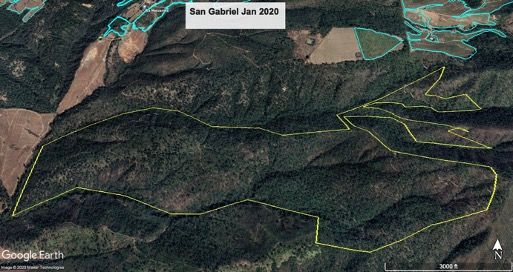
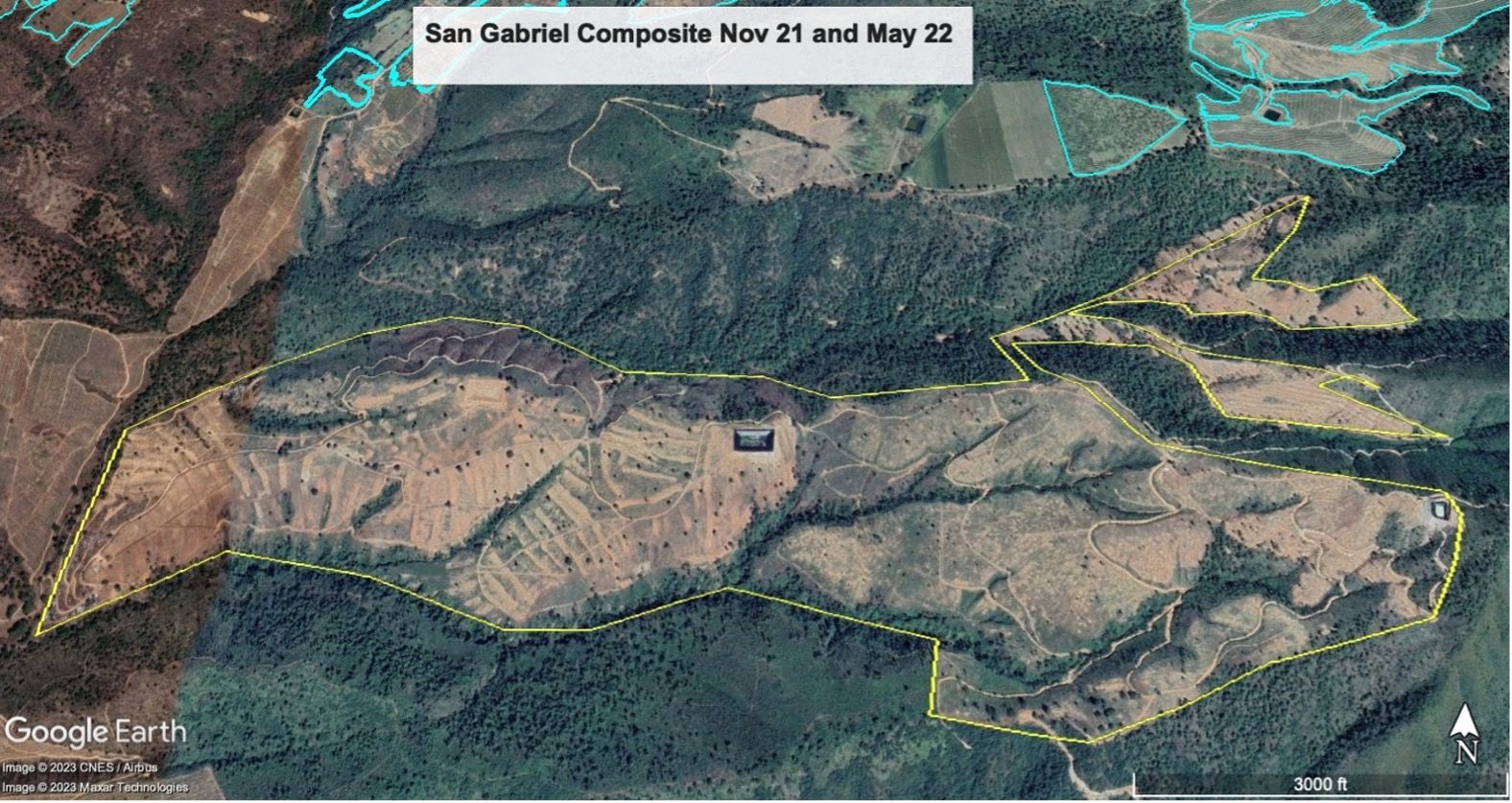
The two Google Earth images above show deforestation between 2020 and 2022 for avocado orchards in the Jalisco area outlined by Climate Rights International in yellow. Images (C) 2023 Maxar Technologies and CNES/Airbus.
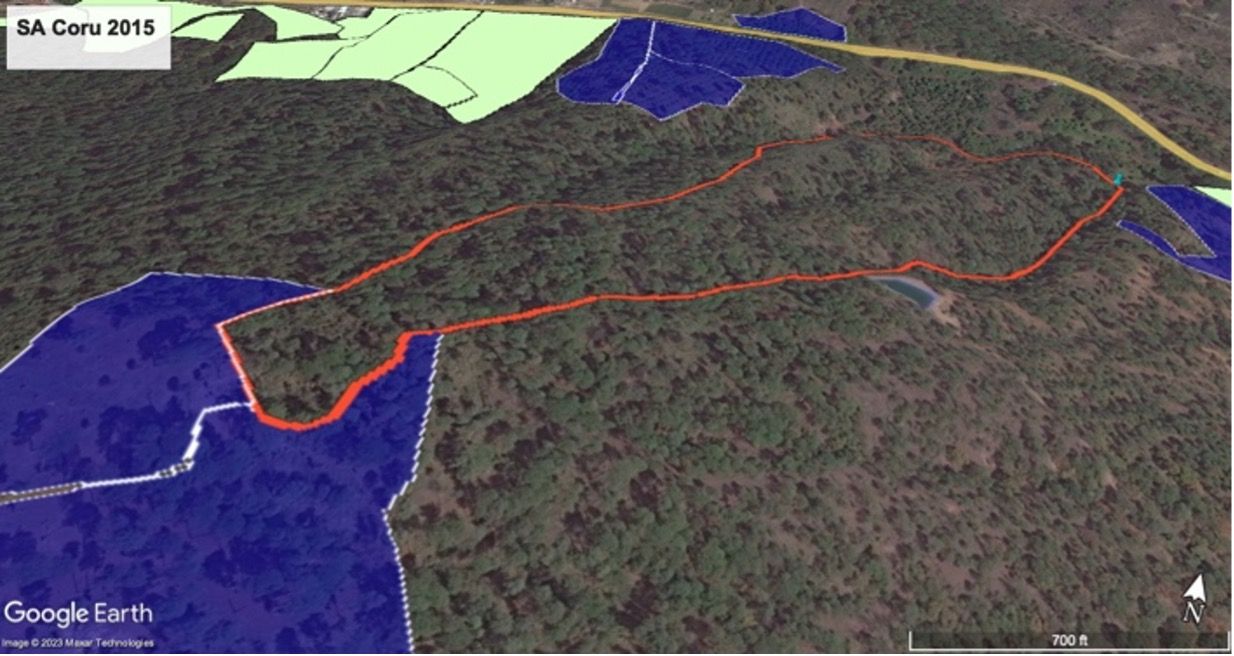
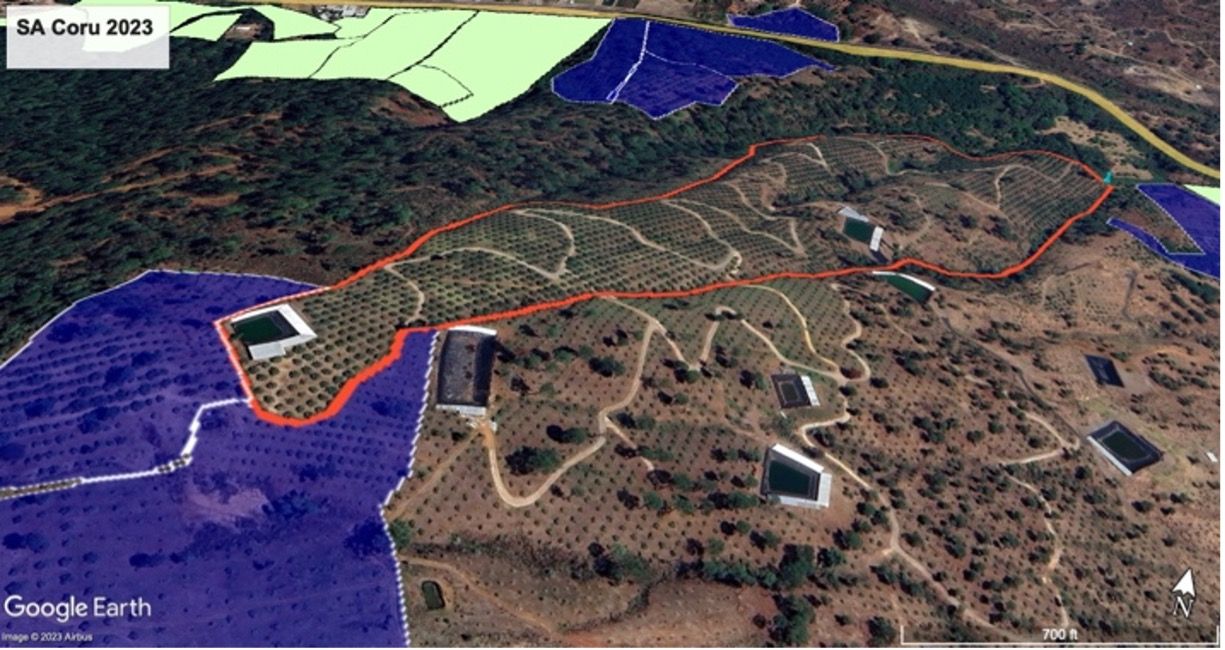
Google Earth, images (C) 2023 Maxar Technologies and Airbus. U.S.-export approved Michoacán orchards in shaded blue, green, and outlined in red. This orchard outlined in red was deforested starting in 2016, and in 2022, supplied 11,770 kilograms of avocado to Mission Produce and 24,900 kilograms to Del Monte.
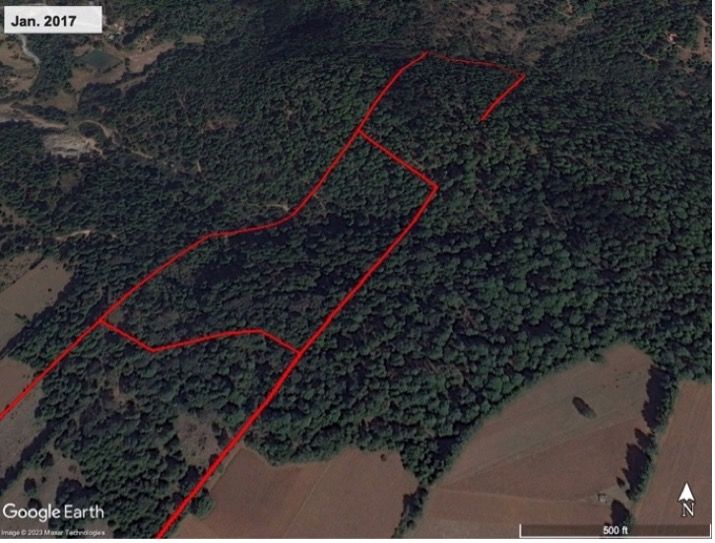
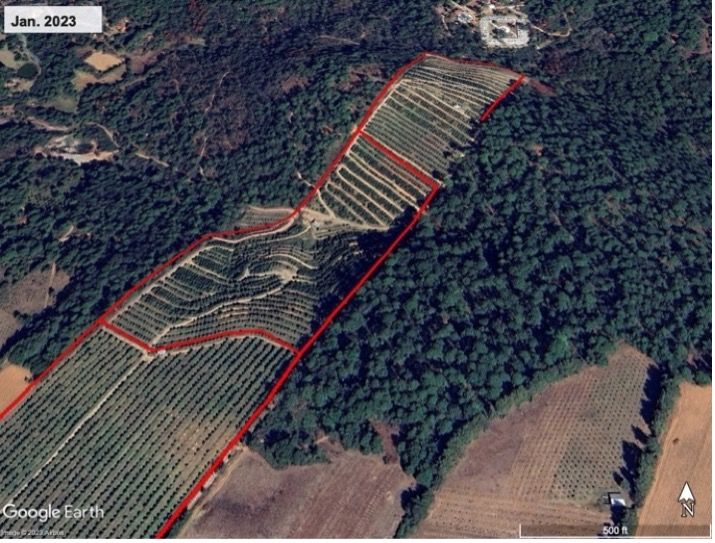
Google Earth, images (C) 2023 Maxar Technologies and Airbus. In 2022, the three Morelia orchards outlined in red supplied 24,800 kilograms to West Pak, 24,665 to Calavo, and 8,030 to Fresh Del Monte, according to government records.

